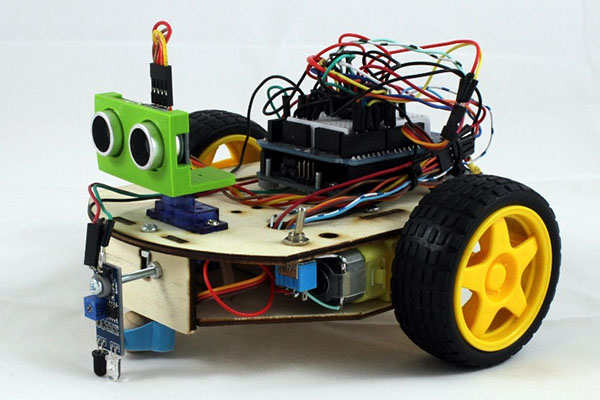Cademix Institute of Technology, Vienna, Austria | +43 650 967 7080 | info@cademix.org


Cademix Institute of Technology
Job seekers Portal for Career Acceleration, Continuing Education, European Job Market
People also visited:
Integrating Accessibility into UX Design
Rules to help you prepare for your next Zoom or Skype interview
Luxury Sale Channel Manager - Professional Work from Home
Challenges in 3D Medical Imaging Reconstruction: Factors and Considerations
European Language Proficiency Tests: CEF vs. IELTS and TOEFL
Essential leadership skills to help you succeed in post covid world
Resin Types in 3D Printing
Biofinity Contact Lenses: A Guide to Comfort and Performance
Exploring Specsavers Optometrist Jobs: Opportunities, Responsibilities, and Benefits
Comprehensive Guide to CV Cover Letter Templates: How to Create, Customize, and Use Professional Cov...
The Future of AI with GPT-4o: Innovations and Expectations
Circular Economy 101: How Recycling and Reuse Contribute to a Greener Planet
How To Use AI To Boost Career Confidence In A VUCA Job Market
Impact of Horizon Europe Framework on Circular Economy
EU Public Funding for Companies and Remarkable Evaluation Criteria
Hospitality and Tourism Careers in Europe: Navigating the Job Market
From Sketch to Prototype: Transforming Your Ideas with TinkerCAD
Innovating for a Sustainable, Eco-Friendly Design Revolution
Optometrist Job Positions in Europe
Nursing Ausbildung vs. University Pathway in Germany: Choosing the Right Route
Ewald-Oseen Extinction Theorem, Transparency Simplified
Study in Europe Consultants: A Comprehensive Guide
Bridging the Skill Gap in PIC Engineering: Continuing Education Strategies for Quantum Computing Pro...
Conditional Offers and Legal Pitfalls: Ensuring Fairness in Recruitment
People also visited:
Bridging Academia and Industry: Why Current Education Models Fall Short
The Evolution of Color Lenses: A Journey Through History and Fashion
Introduction to Computer-Aided Design: Exploring the Basics with TinkerCAD and FreeCAD
Establishing an Eye Center: Business Models and Key Considerations for Business Owners and Investors
Protecting Candidates: Navigating the Legal Minefield of Job Offers
200 Interview Questions for Germany and Austria
CV writing tips for freshers
Luxury Sale Channel Manager - Professional Work from Home
Learning By Doing
Sustainable Interior Design with the help of ArchiCAD
Exploring Career Opportunities in Locum Optometrist Jobs
The Importance of Sustainable Business in Today's World
Agile management In Food Industry during Corona Pandemic
Comprehensive Guide to CV Format Free: How to Create, Customize, and Use Free CV Templates for Job A...
Video CV: 2023 Strategic Approach to Stand Out in the Competitive Job Market
Why "I Hire Optometry" Won't Get You the Job: Effective Job Search Tips for Optometrists
The Hidden Job Market
The Future of Event Planning: Trends to Watch in 2024 and Beyond
OECD's 2024 Recommendations for Austria: Analysis and Potential Scenarios
AI Image Generation: Advanced Techniques for Optimizing Prompts in ChatGPT and MidJourney
Arduino and Raspberry Pi in an Amazing Smart Home
Acuvue Oasys for Astigmatism Daily: A Comprehensive Overview
How to Become an Optometrist: A Comprehensive Guide for Job Seekers
KI-gesteuerte prädiktive Wartung in Hochspannungsstromsystemen



